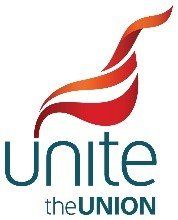Pay Claim 2021
UNITE POSITIONING PAPER FOR THE CO-OP BANK EXECUTIVE COMMITTEE ANNUAL SALARY REVIEW 2021
INTRODUCTION
This paper sets out to outline the considerations that Unite would like the Bank to undertake with respect to the 2021
annual salary review.
We appreciate the continuing economic and market factors which are still affecting the Co-op Bank at this time, notwithstanding the effect of the ongoing pandemic.
However, the impact of several years of low pay rises continues to be felt by members, and we are cognisant of the improving performance of the business. The annual salary review is also an opportunity to address other terms and conditions issues, by way of achieving a rounded package of improvements on which members can vote.
THE TRADES UNION REQUEST
We want the Bank Executive team to give serious consideration to the 2021 pay increase when undertaking the annual budget setting exercise. Specifically, we believe the following points should be given particular attention:
PAY
- Staff need a real and substantial pay increase. They have accepted below inflation pay rises over the last few years to support the business in its recovery, many accommodating increased workloads and stress as the number of staff has fallen. In addition, staff have had toaccommodate changes due to the pandemic to keep the Bank working.
- In line with Unite policy we would request that any pay increase be delivered across the board for all groups of staff, at the same percentage rate
- Reintroduction of a process to move staff towards pay references in a reasonable time –the lack of pay minima and maxima is undermining confidence
- Our members who are at the top, or near the top, of their pay band, are frustrated at not receiving a full rise for their given performance rating. As a consequence there is little incentive to further improve performance, which can only be detrimental to the overall performance of the Bank. Once again we request that one-off holiday equating to the remainder of the rise they would have received if they had not been constrained by the top of their pay
- Salaries at the start of employment may be market related, but thereafter they become solely subject to performance rises. Existing staff are very unlikely to ever close the gap on newer staff who started on a higher salary, thereby building in a continual disparity. Whilst not inherently unlawful, this creates a perception for existing staff of unfairness and being undervalued in comparison, loyalty and service apparently counting for little. It also runs the risk of developing equal pay issues. We continue to seek urgent discussions with a view to resolving this issuend being undervalued in comparison, loyalty and service apparently counting for little. It also runs the risk of developing equal pay issues. We continue to seek urgent discussions with a view to resolving this issue
TERMS AND CONDITIONS
- For several years,we have suggested updating the Ethical Workplace and Culture section of the current Ethical Policy, and we make no apology for doing so again. Currently this is merely reflective of the existing law. The ethical advantage for staff is being lost. We proposed that a third pillar needed to be added to cover the workplace environment, but this has not yet come to pass. Given that any update to the policy would require a vote of customers, which is apparently neither quick nor easy, we have previously proposed an alternative route to achieve the same end, via an Ethical Employment Charter (see Appendix 1for draft proposal). Such a commitment to staff would be very welcome, and would be useful in reinforcing our ethical difference.
- Changes to sick pay entitlement / reducing the amount of time it takes to reach maximum entitlement-this has become especially important due to Covid and the impact on shorter serving staff
- Introduction of 360 performance feedback -from an ethical standpoint, staff should be able to rate how well their managers are doing on an annual basis. At the present time performance management is only a ‘top down’ activity. We believe that to further improve staff engagement, increase management effectiveness and capability, an element of ‘bottom up’ assessment should be introduced annually
- Increased pay transparency for Band B’s
- To demonstrate the Bank’s deep commitment to the ‘Women in Finance’ initiative, and to making the workplace increasingly friendly for women, we seek the introduction of –
- Single Parent / Carer Banked time provision (see Appendix 2)
- A policy or detailed guidance on the menopause
- An increase in volunteering days
- Reintroduction of Public Duty Leave
- As agreed last year but not yet developed, a Flexible Resource Agreement concerning non-permanent staff
- Reintroduction of staff loans and mortgages for the benefit of staff,and the Bank through increased business
- Pay premia to be introduced for multiskilling and / or banking related qualifications
- Notwithstanding all of the above, we would welcome further discussions regarding future annual lump sum arrangements.
Appendix 1
Ethical Employment
Background
Last years’ ASR proposal from Unite included a suggestion to make the Ethical Workplace and Culture Pillar of the Ethical Policy more meaningful for both the staff and the Bank. The policy currently focuses on equal pay, living wage, TU membership, market pay, and culture, most of which is merely reflective of the existing law. We are more principled than that, yet we do not assert our existing ethical employment credentials in a cohesive and positive way.
Proposal
Last year, we suggested that more detail ought to be added to the Ethical Policy to cover the workplace environment. However, that has proven to be problematic due to the need for customers to vote on the Ethical Policy. So, in order to be constructive and progress this issue, we propose an alternative solution to achieve the same end - an Ethical Employment Charter.
This would be a better representation of our existing arrangements, the foundations upon which they are built, and would represent an agreement between Unite and the Bank which is explicit on –
- what our commitments are to achieve an ethical workplace
- what our minimum expectations are
- how we would work together to make it a reality.
Clearly, this would be underpinned by a joint desire to ensure our workplace is reflective of our aims as a Bank underpinned by our ethics and values. We must ensure that we are an employer of choice, and a beacon of standards.n of standards.
Draft Charter for Discussion
ETHICAL EMPLOYMENT
Charter 2020
Between the Co-op Bank and Unite
The aforementioned hereby state –
- Both parties are committed to ensuring that the values and ethics of the business, as determined by Co-op Bank customers, are embedded and developed in our workplace culture
- We therefore believe that the Co-op Bank should be a model for ethics and values driven employment practices that are underpinned by fair treatment, fair consequences, recognition and transparency
- The Co-op Bank aims to ensure this by -
- People Policies that are best practice 1
- Terms, Conditions and Reward that are fair and positioned well in the market 2
- Performance measures that help support colleague improvement whilst also being reasonable and achievable 3
- Zero tolerance of inappropriate behaviour, across all areas and levels of our Bank 4
- Work Life Balance is protected and promoted 5
- Ensuring we give due consideration to environmental and climate change issues raised by employment and workplace practices 6
- Ongoing commitment to regularly review policies and practices with a progressive outlook
4. We jointly recognise that work is an activity, not a place. We therefore encourage homeworking wherever possible and desirable, and in line with our policies on the environment, we recognise that reduced colleague travel will have a lesser impact on climate change
5. Both parties welcome constructive challenge where necessary, and undertake to improve and enhance terms and conditions through collective bargaining
6. We undertake to engage in open and honest dialogue with each other, and with all stakeholders
Notes
1 Best practice means not just legal compliance and minimum standards. It is about ensuring that policies agreed between Unite and the Bank which apply to colleagues are transparent, fair and progressive, in the same way we are with customers.
This commitment is already borne out by some of our existing people policies, such as Holiday, Sickness Absence, Career Breaks, Emergency Leave, etc., but is also includes fair consequences following transparent and unbiased investigation of grievance and disciplinary matters.
Best practice evolves all the time, and we need to always be mindful of maintaining our Co-operative difference for staff.
2 Terms, Conditions and Reward are fair recompense for the work that colleagues do, and that contractual expectations for both the bank and colleagues are clear and reasonable. This commitment is currently underpinned by –
- Commitment to being a Living Wage employer
- Gender Pay Gap Reporting
- Equal Pay Audits – Gender Transparent Reward Governance.
- Potential further expansion of equal pay audits – ethnicity / disability.
3 Performance management is a tool to be used to promote and enhance employee effectiveness. This applies to all colleagues, and 360 degree feedback in the performance process is essential in creating an effective, fair and balanced workplace. Managers need to have a clear understanding of how staff are performing, but staff should also have the right to express their view of their managers performance as well.
4 Bullying and harassment cannot and will not be tolerated, in any form, or from any employee. This is always a difficult area to deal with, but a clear and ongoing commitment to creating a safe and secure workplace environment for all colleagues is vital. We must create a ‘best endeavours’ culture, where colleagues are confident that their efforts will be appreciated and valued.
5 Colleagues have families, interests and activities outside of work, and it is essential that they have a healthy work life balance. Achievable work objectives and reasonable working time are the bedrock of an engaged and committed workforce. Staff must be able to feel that they can speak out if the demands placed on them are too great, without fear of reprisal. We must be mindful to work smart, not long.
Appendix 2
Single Parent / Carer banked time provision
- Unpaid time off – ability to spread the impact financially
- Optional variable working pattern - temporary part time in school holidays / full time in term time
- The ability to bank time for emergencies - up to 10 hours in reserve
- Managers should give full consideration to staff members personal circumstances when organising matters such as call out rotas and overtime to ensure that issues such as child care, particularly for single parents, are not compromised.
N.B. The above can only be invoked if the impact does not result in pay dipping below the minimum wage.



